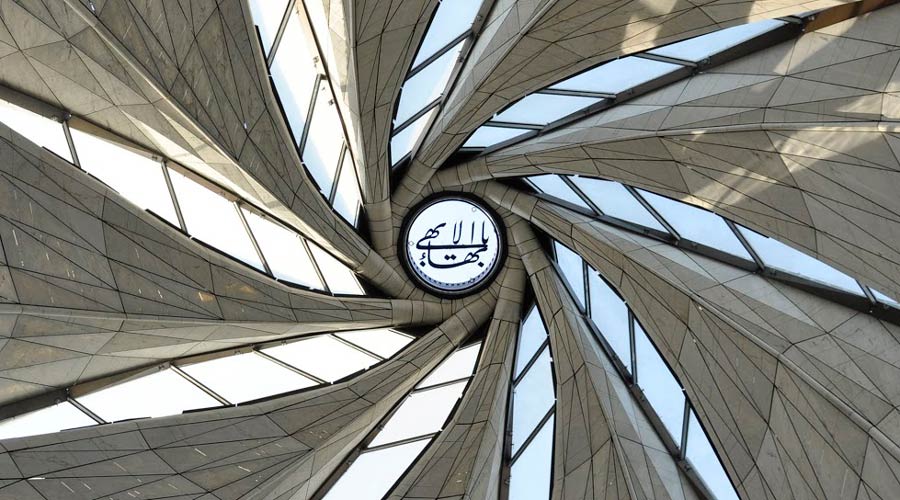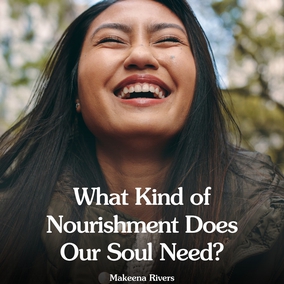The views expressed in our content reflect individual perspectives and do not represent the authoritative views of the Baha'i Faith.
At BahaiTeachings.org, we often receive thoughtful questions from our readers — and it’s always a joy to explore them and offer meaningful answers.
Like this one: “I consider myself a religious person in faith, but I’m not monk-like in my devotion. I’ve always thought that spiritual happiness didn’t have to replace non-religious happiness. Is it alright to not live life devoted to religion, even though I still feel like I have strong faith?”
What a thoughtful, heartfelt and wonderful question, I first thought when I read it.
The reader then went on to elaborate: “Some context to this is that reading holy texts has proved overwhelming for me whenever I have in the past, leading to me giving my copy of the Bible to my library. By that I mean I am much happier when I don’t read the Bible or such holy texts, but I still consider myself a man of faith if not selfless devotion, and I still pray at least twice a day, is this acceptable?”
Wow. See what I mean? The questions we get at BahaiTeachings come straight from the heart and soul, often at the very deepest and most reflective level of human thought, imagination and spiritual search. I feel truly privileged to have the bounty of receiving such heartfelt questions, since their sincerity and soulfulness touch my heart, too. So I’ll devote this series of essays to trying my best to answer some of those questions, as long as I can emphatically issue a major disclaimer first: I’m no authority!

That’s because the Baha’i Faith has no clergy—no priests, pastors, imams, rabbis, gurus or popes. In fact, the Baha’i Faith vests absolutely no power or authority in any one believer. The entire leadership of the Baha’i Faith is democratically elected, at the local, national and international level—and is composed of bodies of nine people, who make their decisions jointly, never ceding their ultimate decision-making authority to any individual member. No one can interpret the Baha’i teachings in any authoritative way except the central figures of the Faith—the Bab, its herald and forerunner; Baha’u’llah, its prophet and founder; Abdu’l-Baha, the center of its covenant and exemplar; and Shoghi Effendi, its Guardian. My personal opinion is worth exactly the same as the personal opinion of any other Baha’i—no more, no less.
That’s why, at BahaiTeachings.org, we always place a strong disclaimer at the end of every article, saying “The opinions and views expressed in this article are those of the author only and do not necessarily reflect the opinion of BahaiTeachings.org or any institution of the Baha’i Faith.” We mean it, too. Our standard disclaimer isn’t there, like it is in so many other places, to satisfy legal requirements—it’s there because the Baha’i teachings say clearly that no individual Baha’i can ever claim any authority:
A clear distinction is, however, drawn in the Baha’i Writings between authoritative interpretation and the understanding that each individual arrives at from a study of its Teachings. Individual interpretations based on a person’s understanding of the Teachings constitute the fruit of man’s rational power and may well contribute to a greater comprehension of the Faith. Such views, nevertheless, lack authority. – The Universal House of Justice, in Baha’u’llah’s Most Holy Book, p. 221.
So, as always here on this site, I’ll present my personal views in the hope that they can make a small contribution to our collective knowledge about the Baha’i teachings—with the insistent caveat that they’re just my views, and that you’re equally entitled to form and express your own, based on your independent understanding of the Baha’i teachings. That’s part of the beauty of being a Baha’i:
Let us also remember that at the very root of the Cause lies the principle of the undoubted right of the individual to self-expression, his freedom to declare his conscience and set forth his views. – Shoghi Effendi, Baha’i Administration, pp. 63-64.
You’ve no doubt noticed, if you read BahaiTeachings.org regularly, that we have many different voices here expressing their own opinions about the Baha’i teachings. We do that on purpose, constantly inviting and recruiting more people as contributors, because we want a wide variety of opinions, input and observations from a diverse range of writers and speakers.
After that very long disclaimer, let’s go back to our regular programming, and think about that profound question we received from a reader. Here it is again: “I consider myself a religious person in faith, but I’m not monk-like in my devotion. I’ve always thought that spiritual happiness didn’t have to replace non-religious happiness. Is it alright to not live life devoted to religion, even though I still feel like I have strong faith?”
I think I’d like to start answering that deep question with a few of Abdu’l-Baha’s startling definitions of happiness and joy:
True happiness depends on spiritual good and having the heart ever open to receive the Divine Bounty. – Abdu’l-Baha, Paris Talks, p. 109.
No matter how far the material world advances, it cannot establish the happiness of mankind. Only when material and spiritual civilization are linked and coordinated will happiness be assured. – Abdu’l-Baha, The Promulgation of Universal Peace, p. 109.
… all the sorrow and the grief that exist come from the world of matter — the spiritual world bestows only the joy!
If we suffer it is the outcome of material things, and all the trials and troubles come from this world of illusion.
For instance, a merchant may lose his trade and depression ensues. A workman is dismissed and starvation stares him in the face. A farmer has a bad harvest, anxiety fills his mind. A man builds a house which is burnt to the ground and he is straightway homeless, ruined, and in despair.
All these examples are to show you that the trials which beset our every step, all our sorrow, pain, shame and grief, are born in the world of matter; whereas the spiritual Kingdom never causes sadness. A man living with his thoughts in this Kingdom knows perpetual joy. The ills all flesh is heir to do not pass him by, but they only touch the surface of his life, the depths are calm and serene. – Abdu’l-Baha, Paris Talks, p. 110.
















Comments
Sign in or create an account
Continue with Googleor